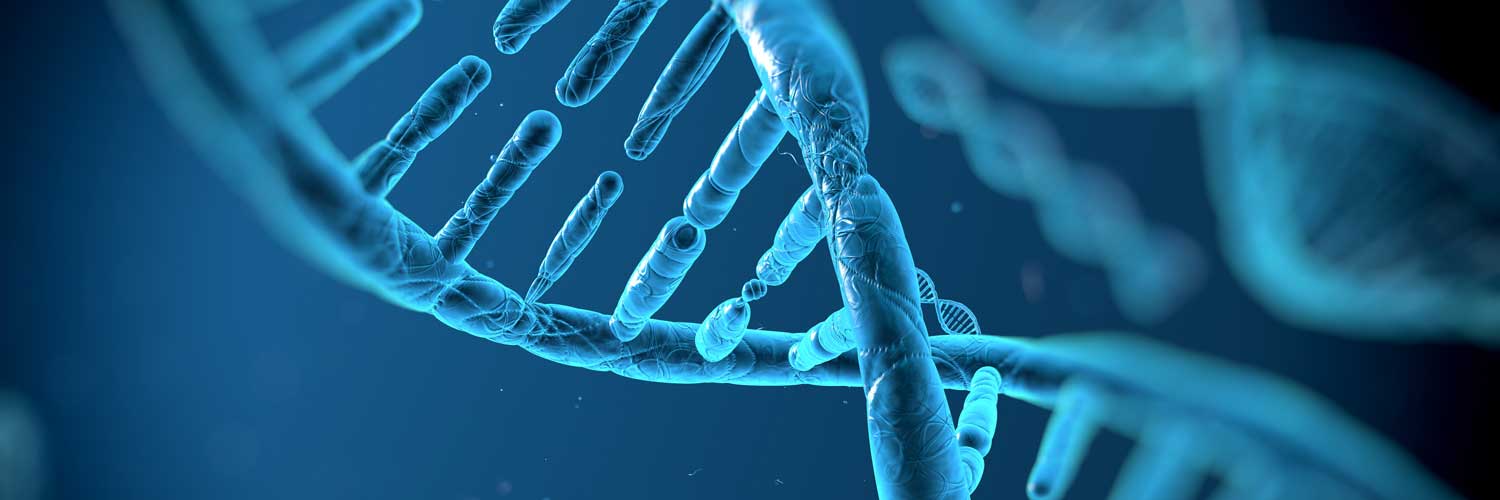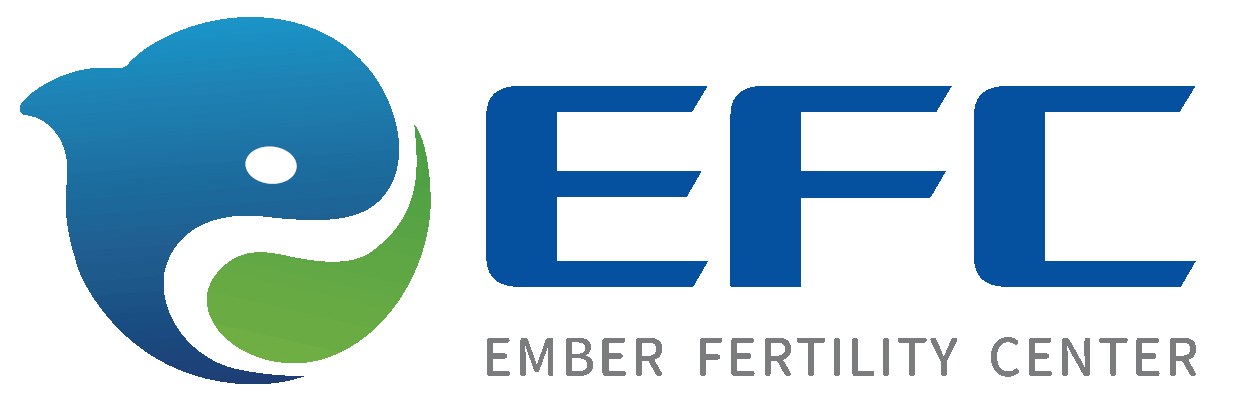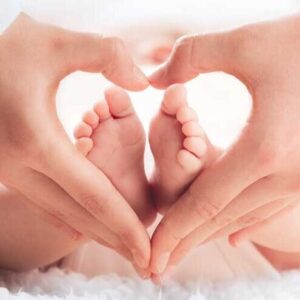Key points to diminished ovarian reserve and premature ovarian failure
- Diminished ovarian reserve (DOR) is when the number and/or quality of oocytes (eggs) remaining in the ovaries is lower than normal for the age of the woman, reducing her reproductive potential.
- Premature ovarian failure (POF), or primary ovarian insufficiency, is a condition in which the ovaries of women under age 40 stop functioning normally.
- Both conditions can result in infertility.
- Ember provides tests to evaluate the extent of DOR, which aids us in determining assisted reproductive technology treatment options, such as in vitro fertilization (IVF).
- Our treatments for premature ovarian failure involve addressing complications of estrogen deficiency, and we can address POF related infertility using IVF with donor eggs.

At Ember, everyone is a VIP – very important patient
And we have a thing for the small things: Each Ember patient gets a dedicated fertility coordinator, a patient’s personal care guide through every clinic detail, from the very first phone call to meeting your little miracle.
What is diminished ovarian reserve (low ovarian reserve)?
Diminished ovarian reserve, or low ovarian reserve, refers to decreases in reproductive ability due to declining quantity and/or quality of eggs remaining in the ovaries. This decline in ovarian reserve is an aspect of a woman’s biological clock that affects fertility potential. Although the decline in egg quality and number is inevitable, it happens at different times for individuals.

Did you know decline in egg quality & fertility speeds up around age 32?
A woman is born with all the eggs she will ever have. According to the American College of Obstetricians and Gynecologists (ACOG), the rate of decline in egg quality/quantity and fertility potential becomes more rapid around age 32. ACOG indicates that a woman has 6 to 7 million eggs as a 20-week fetus, when egg production ends. By puberty, she has up to half a million and by age 37 roughly only 25,000.
Many women are unaware of this rapid progression in their declining fertility. As a result, they often wait until they are beyond their fertility prime to consider egg freezing for a future pregnancy. Understanding this reality can lead to greater chances of success though freezing healthier eggs at an earlier age.
Egg quality/quantity decline is normal: Diminished ovarian reserve is not
A decline in egg quantity and quality is normal as women age, but diminished ovarian reserve means this decline happens sooner than is normal. This can happen at age 20, though most women experience this around age 40 and near menopause.
A diagnosis of DOR means a woman desiring to have children needs to address this issue when it is discovered. It is most often discovered when individuals seek medical help for trouble conceiving.
Diminished ovarian reserve is not reversible or curable, according to Medical News Today and other sources. But women with DOR can still get pregnant. It is a condition that our fertility specialist, Dr. William Freije, must work around applying IVF.
Causes of diminished ovarian reserve
There are two natural causes of DOR.
- A woman is born with fewer eggs and/or has eggs of lesser quality than other women.
- Her eggs experience abnormal rates of damage over time.
When a woman ages, the ratio of poor quality eggs to good quality eggs increases. This means an increased chance of pregnancy failure. Damaged eggs also increase the chance of a child being born with a birth defect.
Other factors and conditions can cause DOR. These include genetic disorders, autoimmune disease that affects the ovaries, chemo and radiation treatments for cancer, and ovarian surgery such as for endometriosis.
Uptick in diminished ovarian reserve
Ember and other fertility clinics have seen increasing instances of diminished ovarian reserve as well as it happening at earlier ages. DOR is being diagnosed more often, in part because women are delaying childbearing longer than in the past and experiencing difficulty conceiving.
Because of this, it is important to seek a fertility evaluation early if a woman suspects she may have diminished ovarian reserve. This can be problematic as there are usually no symptoms of DOR, though some women experience shorter menstrual cycles as the condition advances.
Failure to conceive is often the only sign. It’s through testing that most people discover they have DOR.

We have a thing for the small things
- A welcoming, small-practice atmosphere designed for the patient.
- We focus on quality time and care for each individual.
- Our fertility doctor sees the patient at every visit.
- We celebrate each little miracle born with Ember’s help.
Diagnosis & low ovarian reserve treatment
Our fertility specialists utilize ultrasound to evaluate egg count and blood tests to assess levels of key reproductive hormones related to egg quality.
Antral follicle count
A follicle contains and nurtures an egg. We perform an antral follicle count with transvaginal ultrasound to evaluate the number of follicles that have matured. Few follicles can indicate diminished ovarian reserve.
Anti-Müllerian hormone test
Follicles secret the anti-Müllerian hormone (AMH) when they exit the ovary. Low AMH levels indicate low ovarian reserve. This test also can help us predict how many eggs might be retrieved during IVF.
Following are median AMH levels in nanograms per milliliter (ng/mL) by age as reported by the Journal of Human Reproductive Science.
| Age | AMH levels |
| 20 – 25 | 4.23 ng/mL |
| 26 – 30 | 3.48 ng/mL |
| 31 – 35 | 2.43 ng/mL |
| 36 – 40 | 1.28 ng/mL |
| 40 – 44 | 0.52 ng/mL |
Follicle-stimulating hormone (FSH) testing
A high FSH level found in blood testing suggests low ovarian reserve due to faulty ovarian function. A high FSH level also indicates that IVF will probably not be successful.
Superovulation
Ovarian superovulation is an enhanced form of ovulation induction. Injectable hormones cause a woman to ovulate multiple eggs rather than the normal one egg released during each cycle. We collect these eggs and evaluate them for signs of usable quality. The good eggs are either cryopreserved for future IVF use or temporarily stored for a fresh IVF cycle.
Recommended ages to freeze eggs for fertility preservation
The American Society for Reproductive Medicine reports that egg freezing for women in their 20s to early 30s generally works best. The Society notes that egg freezing is not usually recommend for those older than 38.
Retrieving and freezing eggs when a woman with DOR is younger for later use means those eggs should be of better quality and more plentiful than eggs that might be frozen at a later age. This is known as fertility preservation and involves IVF.
Related reading: Egg freezing
Using egg donation with IVF
This uses another woman’s eggs instead of eggs of poor quality from a woman with DOR. This combination quite often increases the chances of IVF success. Ember offers donor eggs from egg banks (frozen) and fresh egg options.
Related reading: Egg donation

Premature ovarian failure (primary ovarian insufficiency)
Premature ovarian failure (POF), or primary ovarian insufficiency, is when the ovaries of women under age 40 stop producing the hormone estrogen or regularly release eggs, often causing infertility. Women age 35-40 have a greater risk for primary ovarian failure, as do those with a family history of POF.
- Symptoms include irregular or missed periods, decreased sexual desire, hot flashes, night sweats and difficulty conceiving.
- Women should see a doctor if they have missed three or more periods.
- POF can cause infertility, heart disease, osteoporosis and depression.
- Treatments that address symptoms are estrogen therapy and supplements of vitamin D and calcium.
- IVF with egg donation is the treatment we offer for women experiencing infertility due to POF.




